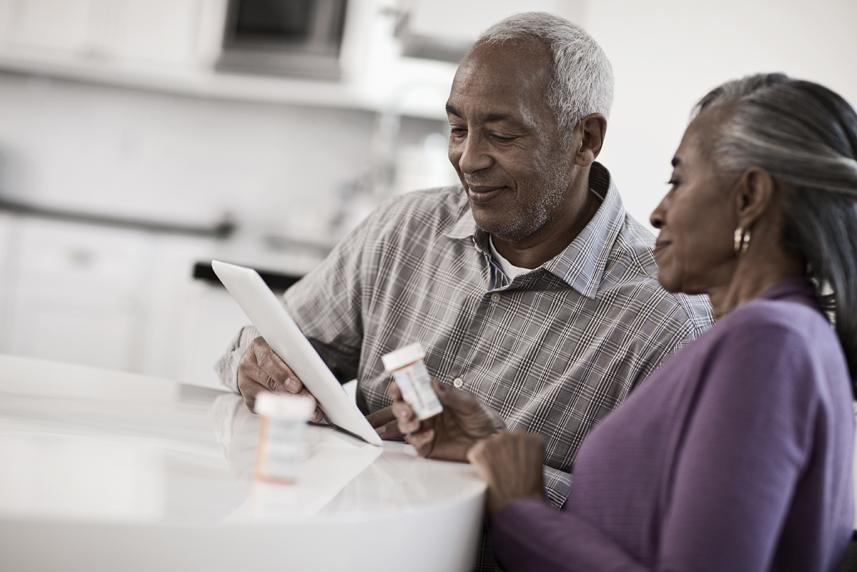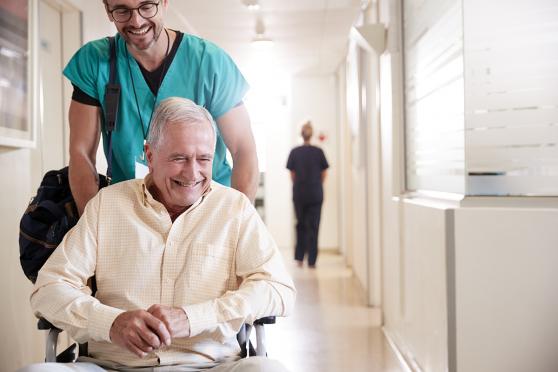Discharged from the Emergency Room? Here’s What You Need to Know.
Take control of your health after a visit to the ER with these expert tips.

When you get home from the emergency room (ER), the last thing you want to think about is having to go back. Sometimes, it’s unavoidable. But there are simple steps you can take to lower your chance of making a repeat trip.
Here, an expert shares tips for staying healthy in the days, weeks, and months following a visit to the ER.
Pro tip #1: Be sure you understand your diagnosis and instructions for care.
Let’s face it: Being in the emergency room can be overwhelming. And people often leave without a clear understanding of what happened to them and what it all means, says Lynn McNicoll, MD. Dr. McNicoll is a geriatrician at Lifespan in Providence, Rhode Island.
For example, maybe you went to the ER because you had a high fever and shortness of breath. If your brain was foggy or you were feeling on edge, it might have been tough to follow your provider’s explanation of your test results. And not all providers are great at translating medical terms into plain English.
Do your best to stay engaged in the conversation with your provider. It will help set you up to care for yourself once you’re back at home, says Dr. McNicoll. Don’t understand something? Don’t be afraid to say so. Then ask the provider to say it in a simpler way.
Worried about being overwhelmed by the provider’s orders or fully absorbing their directions? Ask a friend or family member to join you. They can help ask questions and jot down notes.
Pro tip #2: Schedule a follow-up appointment with your primary care provider (PCP).
Research shows that visiting your PCP within 7 days of an ER discharge lowers the rate of return trips to the ER. When you call to make an appointment with your PCP, let the office know that you were just seen in the ER. That way your provider will know to check your progress since your discharge.
Your PCP can help catch any potential complications early, including medication-specific issues, says Dr. McNicoll. If you can’t see your doctor within a week, Dr. McNicoll recommends trying to get in within 14 days.
Pro tip #3: Steer clear of germs at home.
An infected wound. Coming down with another illness. These can sometimes send people back to the hospital. Remember, your immune system is likely weaker than usual after an ER visit.
To protect yourself, do what you normally do during cold and flu season to stay well. Limit contact with others who do not feel well. And wash your hands often. When you wash, use soap and warm water and scrub for at least 20 seconds. Always wash your hands:
- Before touching a wound, IV, or catheter.
- Before eating.
- After using the bathroom.
Ask loved ones to wash their hands as well.
Pro Tip #4: Be aware if something feels off.
Ask your provider about any red flags you should watch out for during your recovery. These might include:
- Fever.
- Pain.
- Signs of infection like redness, warmth, or discharge around a wound or incision.
And trust your gut. If something doesn’t feel right, call your provider. Remember: You know your body better than anyone.
Pro tip #5: Track medication changes.
It’s important to understand any new medications you were prescribed. Ask your provider about:
- Why you’re taking the medication.
- What it does.
- Side effects.
- Interactions with your other medications.
- Changes to your previous medications.
“Often, people will have different medications, but they’ll continue old medications. And then there will be duplicates,” Dr. McNicoll says. “That’s where a lot of errors happen, which often leads to a trip back to the emergency room.”
Pro tip #6: Stay active.
Moving around as best as you can helps you heal faster. The key here is listening to your body: Make sure it has both the rest and movement it needs to recover. “We don’t want people to lie in bed all day because they’ll get weaker,” Dr. McNicoll says. “If their body is telling them they need to rest, they should rest. But in between naps, don’t just lie there. Get up and be active.”
Ask your PCP about the right level of activity for you.
Pro tip #7: Eat healthy foods.
You need nutrients to help fuel your recovery — even if you’re not feeling hungry. As always, talk to your provider about what types of foods you should be eating. Some good rules of thumb:
- Have protein and carbohydrates with each meal.
- Drink plenty of water and other liquids, including soup.
- Stay away from any overly sugary foods and drinks.
- Limit or stop drinking alcohol.
A little self-care can go a long way toward helping you heal at home. When in doubt, reach out to your healthcare team for guidance.
[Source:]
[1] Wiest D, Yang Q, MCom CW, et al. “Outcomes of a Citywide Campaign to Reduce Medicaid Hospital Readmissions with Connection to Primary Care Within 7 Days of Hospital Discharge.” JAMA Network Open. 2019, vol. 2, no. 1, pages: e187369.

